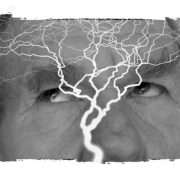Dystonia, What Is It And When To See A Neurologist
According to the American Association of Neurological Surgeons (AANS) 250,000 people in the United States have Dystonia, making it the third most common movement disorder. Dystonia is a very complex, variable neurological movement disorder identified by involuntary muscle contractions. Unfortunately, it is a condition that knows no age, ethnic or racial boundaries—it can affect young children to older adults of all races and ethnicities. Leesburg neurologist, Dr. Sarbjot Dulai, explains what Dystonia is, and why it is important to see a neurologist as soon as you experience any symptoms.
What is Dystonia?
Dystonia is a disorder characterized by involuntary muscle contractions that cause slow repetitive movements or abnormal postures. This is the result of abnormal function of the basal ganglia—the part of the brain responsible for movement and muscle contractions. These movements may be painful, and some individuals with Dystonia may have a tremor or other neurological symptoms.
There are also several different forms of Dystonia that may affect only one muscle (Focal), groups of muscles (Multifocal, Segmental, and Hemidystonia), or muscles throughout the body (Generalized). Some forms of Dystonia are genetic but the cause for most cases is unknown.
When do symptoms occur and what are the symptoms?
Dystonia can occur at any age, but genetic and idiopathic Dystonia are often divided as either early/childhood onset, or adult onset.
- Early onset Dystonia often begins with symptoms in the limbs and can progress to involve other regions. Periods of exertion can exacerbate symptoms and can fluctuate over the course of a single day.
- Adult-onset Dystonia usually is located in one or adjacent parts of the body, most often involving the neck and facial muscles. Acquired Dystonia can affect other regions of the body as well.
Dystonia progresses through various stages. Initially, Dystonic movements may be intermittent and appear only during voluntary movements or stress. Following this period, individuals may start to show Dystonic postures/movements while walking and ultimately even while they are relaxed. Dystonia can be associated with shortening of the tendons.
The symptoms of Dystonia can affect many parts of the body and are different depending on the form of Dystonia. Symptoms may include:
- Foot cramping or a tendency for one foot to turn or drag (this can happen sporadically or after running/walking)
- Worsening handwriting
- The neck may turn or pull involuntarily, especially when the person is tired or under stress
- Both eyes blink rapidly and uncontrollably
- Tremors
- Difficulty speaking.
Symptoms can be very mild and may be noticeable only after prolonged exertion, fatigue, or stress. However, over time the symptoms may become more and more noticeable or widespread. On the other hand, sometimes there is very little or no progression. In some cases, Dystonia can affect only one specific action, while allowing others to happen unimpeded. One such example would be if a photographer had Dystonia when using a hand to take photos, but not when using the same hand to type.
What Treatments are available?
Currently, there are no medications to prevent Dystonia or slow its progression. There are, however, several treatment options that can ease some of the symptoms, so physicians can select a therapeutic approach based on each individual’s symptoms. Treatment methods include:
- Several types of medication
- Botulinum toxin injections
- Deep brain stimulation (DBS)
- Physical and other therapies
- Different options of surgery.
Treatment options may be used with each other or alone depending on the doctor’s recommendations. Early diagnosis is key to improving symptoms and quality of life for those with Dystonia.
Make An Appointment With Dr. Dulai Today!
Early detection can be key in treating Dystonia. If you or a loved one are experiencing any symptoms of Dystonia, schedule an appointment with Dulles neurology specialist Dr. Sarbjot Dulai today. With his vast experience, he can take the time to assess your medical history, diagnose, and create a personalized treatment for you. Contact Neurology Associates today at (703) 726-6393 to schedule a consultation with Dr. Dulai.










